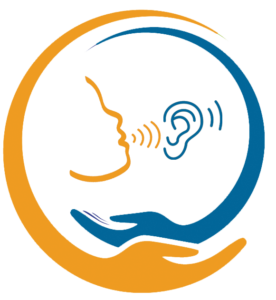Tinnitus, a perplexing auditory phenomenon, affects a significant number of people globally. Characterized by the perception of ringing, buzzing, or hissing sounds in the ears, tinnitus can be persistent or intermittent, leading to considerable distress and a diminished quality of life. Despite its prevalence, tinnitus remains a challenging condition to treat effectively, leaving both patients and researchers in search of a cure.
Unlocking the Mystery: Why Isn’t There a Treatment for Tinnitus?

In this comprehensive article, we will delve deeper into the complexities of tinnitus and explore the reasons why a definitive treatment for this mysterious condition has remained elusive. We’ll even discover effective Treatment for Tinnitus.
Understanding Tinnitus
Tinnitus, derived from the Latin word “tinnire” meaning “to ring,” is not a disease in itself but rather a symptom of an underlying issue. It can be linked to a myriad of causes, including exposure to loud noise, age-related hearing loss, ear infections, circulatory system disorders, and even stress and anxiety. The phantom sounds experienced by individuals can vary in pitch and intensity, and the condition can affect one or both ears.
Tinnitus can be classified into two main types
Subjective Tinnitus: This is the most common form of tinnitus where only the affected individual perceives the sounds. It is often associated with hearing loss and may result from damage to the auditory system.
Objective Tinnitus: In this rare type, both the patient and the examiner can hear the sounds using a stethoscope or other sensitive equipment. Objective tinnitus is usually associated with underlying vascular or muscular conditions.
The Impact on Quality of Life
Living with tinnitus can be challenging. The constant presence of noise can lead to sleep disturbances, difficulty concentrating, and heightened levels of stress and anxiety. Additionally, tinnitus can interfere with communication, making social interactions more arduous for those affected. As a result, the search for an effective treatment that can alleviate these symptoms and improve the quality of life for tinnitus sufferers is of utmost importance.
Unraveling 6 Treatment for Tinnitus
While there is no universal Treatment for Tinnitus, several treatment approaches aim to manage its impact on patients’ lives. These include
- Sound Therapy: Utilizing external sounds, such as white noise, nature sounds, or music, to mask the tinnitus and make it less noticeable. Sound therapy can provide temporary relief and promote habituation to the internal sounds.
- Cognitive Behavioral Therapy (CBT): Focusing on changing negative thought patterns and emotional reactions to tinnitus, CBT can help patients cope with the distress associated with the condition.
- Medications: Certain medications, such as antidepressants or antianxiety drugs, may be prescribed to manage the emotional aspects of tinnitus.
- Hearing Aids: For individuals with tinnitus and hearing loss, hearing aids can be an effective Treatment for Tinnitus option. Hearing aids amplify external sounds, which can help mask the internal noises associated with tinnitus.
- Tinnitus Retraining Therapy (TRT): TRT is a specialized form of therapy that combines sound therapy with counseling. This treatment aims to rewire the brain’s response to tinnitus, reducing the perception and impact of the condition over time.
- Experimental Treatments: Researchers are investigating innovative treatments, including electrical stimulation, magnetic therapy, and drug-based therapies, in clinical trials to find potential breakthroughs.
𝐼𝑓 𝑦𝑜𝑢’𝑟𝑒 𝑙𝑜𝑜𝑘𝑖𝑛𝑔 𝑓𝑜𝑟 𝑎 𝐵𝑒𝑠𝑡 𝐻𝑒𝑎𝑟𝑖𝑛𝑔 𝑎𝑖𝑑 𝐶𝑙𝑖𝑛𝑖𝑐 𝑓𝑜𝑟 𝑦𝑜𝑢 𝑜𝑟 𝐻𝑒𝑎𝑟𝑖𝑛𝑔 𝑖𝑚𝑝𝑎𝑖𝑟𝑚𝑒𝑛𝑡 𝑠𝑒𝑟𝑣𝑖𝑐𝑒 𝑖𝑛 𝐾𝑜𝑙𝑘𝑎𝑡𝑎, 𝑡ℎ𝑒𝑛 𝐴𝑢𝑟𝑎𝑙𝑐𝑎𝑟𝑒 𝑖𝑠 𝑡ℎ𝑒 𝑟𝑖𝑔ℎ𝑡 𝑝𝑙𝑎𝑐𝑒 𝑓𝑜𝑟 𝑦𝑜𝑢!
𝔖𝖈𝔥𝖊𝔡𝖚𝔩𝖊 𝖆 𝕬𝔭𝖕𝔬𝖎𝔫𝖙𝔪𝖊𝔫𝖙
The Importance of Holistic Care
While a definitive cure may not be available at present, holistic care and management play a crucial role in improving the quality of life for individuals with tinnitus. Implementing lifestyle changes, such as avoiding exposure to loud noises, managing stress levels, and incorporating a healthy diet and exercise routine, can significantly impact tinnitus symptoms.
The Complexities of Tinnitus
While these treatments offer some relief to tinnitus patients, they do not address the root cause of the condition. This leads us to the question: Why is finding a definitive treatment for tinnitus so challenging?
- Diverse Underlying Causes: Tinnitus can result from a wide range of underlying causes, making it a complex condition to diagnose and treat. Identifying the specific cause for each individual can be elusive, hindering the development of targeted treatments.
- Subjectivity of Symptoms: Tinnitus is a highly subjective experience, and the severity and impact of symptoms can vary greatly from person to person. What works for one individual may not be effective for another, making it challenging to find a universal treatment.
- Limited Research Funding: Tinnitus research has not received the same level of funding and attention as other medical conditions, despite its prevalence. Limited resources restrict the progress of scientific studies and clinical trials necessary for breakthroughs in treatment options.
- Lack of Biomarkers: Unlike many other medical conditions, tinnitus does not have specific biomarkers that can aid in diagnosis or treatment evaluation. This absence of objective measures makes it harder to track the progress of potential treatments.
Challenges in Treatment for Tinnitus
Despite these treatment approaches, finding a definitive Treatment for Tinnitus remains elusive due to several complex challenges
- Heterogeneity of Tinnitus: Tinnitus is a multifaceted condition with various underlying causes and individual experiences. This heterogeneity makes it challenging to develop a one-size-fits-all treatment approach.
- Lack of Objective Measures: Unlike other medical conditions, tinnitus lacks objective biomarkers or physical indicators. Diagnosis and treatment evaluation rely primarily on subjective reports, complicating the research process.
- Limited Funding for Research: Tinnitus research has historically received less funding compared to other medical conditions. The limited resources hinder large-scale clinical trials and comprehensive studies needed to unravel the mysteries of tinnitus.
- Neuroplasticity and Perceived Sound: The brain’s remarkable ability to adapt, known as neuroplasticity, plays a significant role in tinnitus perception. Changes in neural circuits can amplify the perception of sound, making it challenging to target the root cause of the condition.
- Co-Occurrence with Hearing Loss: Many individuals with tinnitus also experience hearing loss. This dual condition can make it difficult to distinguish the effects of tinnitus from those of hearing impairment and develop targeted treatments.
- Psychological Impact: Tinnitus can lead to emotional distress, anxiety, and depression in some individuals, creating a complex interplay between physical symptoms and mental health.
Lifestyle Changes and Coping Mechanisms
In addition to the treatments mentioned above, certain lifestyle changes and coping mechanisms can significantly improve the management of tinnitus.
- Avoid Loud Noises: Protect your ears from loud environments and use earplugs when necessary to prevent further damage.
- Manage Stress: Stress can exacerbate tinnitus symptoms, so practicing relaxation techniques like yoga or meditation can be beneficial.
- Diet and Exercise: A healthy lifestyle can positively influence tinnitus. Eating a balanced diet and engaging in regular physical activity can contribute to overall well-being.
Promising Advancements and Future Directions
Despite the challenges, the field of tinnitus research has seen promising advancements that offer hope for future breakthroughs
- Neuromodulation Techniques: Approaches such as transcranial magnetic stimulation (TMS) and transcranial direct current stimulation (tDCS) show promise in influencing neural activity and reducing tinnitus perception.
The Role of Neuroscience and Technology
In recent years, advances in neuroscience and technology have opened new possibilities for tinnitus research and treatment. Neuroimaging techniques, such as functional MRI (fMRI) and positron emission tomography (PET), allow researchers to observe brain activity and gain insights into how tinnitus is processed in the brain.
- Regenerative Medicine: Researchers are exploring the potential of regenerative therapies, such as stem cell treatments, to repair damaged auditory cells and restore hearing function.
- Precision Medicine: Advancements in genomics and personalized medicine may lead to tailored treatments based on an individual’s specific tinnitus profile and underlying causes.
- Multi-Disciplinary Collaboration: Collaboration between audiologists, neuroscientists, psychologists, and medical professionals is essential By pooling resources and sharing knowledge, the tinnitus community can make significant strides in understanding the condition and developing effective treatments.
Difference between an Audiologist and a Hearing Aid Specialist
To sum up, Tinnitus remains an intriguing and elusive condition, impacting the lives of millions worldwide. While a definitive cure has not been discovered, ongoing research and advancements in neuroscience and technology and a holistic cure provide hope for improved Treatment for Tinnitus options. By addressing the challenges of heterogeneity, funding, and subjective diagnosis, researchers can continue unlocking the mysteries of tinnitus and ultimately provide relief and a better quality of life for those living with this enigmatic condition. Remember, each person’s experience with tinnitus may differ, so it is crucial to tailor treatment plans to individual needs.
If you or someone you know is suffering from tinnitus, do not hesitate to seek professional help. Effective treatment and management are possible, allowing individuals to regain control and lead fulfilling lives despite the presence of tinnitus. And also adopting a holistic lifestyle can make a significant difference in managing the condition.
Hopefully, the above discussion of various tinnitus treatment options and how technology is transforming the landscape these will help you when you are concerned about it. Get more information then touch with us.
So, if you’re searching for a Best Hearing assessment near me or Hearing Aid Test Near You, then you’re the right place for you, because when it comes to hearing aid services, Aural Care stands out as the best hearing aid clinic in Kolkata. Our commitment to providing exceptional care and cutting-edge technology ensures that individuals with hearing loss receive the highest level of service. Aural Care’s team of experienced audiologists and hearing specialists are dedicated to improving the quality of life for their patients by offering personalized solutions tailored to individual needs. With a wide range of hearing aids and accessories, we ensure that every patient finds the perfect fit. Trust Aural Care for our expertise, state-of-the-art facilities, and compassionate approach to hearing healthcare. Experience the difference today and regain the joy of clear, vibrant sound.
Rediscover Life’s Beautiful Sounds!
FAQs
Q: Are there any proven medical treatments for tinnitus?
A- Yes, there are some medical treatments available for tinnitus, such as cognitive behavioral therapy, sound therapy, and certain medications. However, the effectiveness of these treatments may vary from person to person.
Q: Can stress and anxiety worsen tinnitus symptoms?
A- Yes, stress and anxiety can exacerbate tinnitus symptoms. High stress levels can make tinnitus more noticeable and bothersome for some individuals.
Q: What are some lifestyle changes that may help manage tinnitus symptoms?
A- Lifestyle changes such as reducing exposure to loud noises, avoiding stimulants like caffeine and nicotine, and managing stress can help manage tinnitus symptoms.
Q: Can exposure to loud noises cause tinnitus, and how can it be prevented?
A- Yes, exposure to loud noises can cause tinnitus. To prevent it, it is essential to use ear protection in noisy environments and keep the volume down while listening to music.
Q: Are there any support groups or resources available for individuals with tinnitus?
A- Yes, there are various support groups and online resources that provide information, tips, and emotional support for individuals with tinnitus.
Q: Does tinnitus affect sleep quality, and are there any tips for better sleep?
A- Tinnitus can disrupt sleep for some individuals. Tips for better sleep include creating a relaxing bedtime routine, using white noise machines, and keeping the bedroom environment quiet and comfortable.
Testimonial
About Aural Care

Aural Care is the Best Hearing Aid Clinic in Kolkata offering high quality facilities with lots of experienced doctors. We have 15 years experience in this field. Here, we offer the most comprehensive diagnostic facilities and the latest and best technology in hearing aids.
- Address: GB7, 822, Rajdanga Main Road . Opp. GST Bhawan. Kol 700107
- Phone: +91 98315 37979
- Mail: info@auralcarekolkata.in
- Facebook: facebook.com/AuralCareCenterKolkata
- Instagram: instagram.com/auralcarecenter


